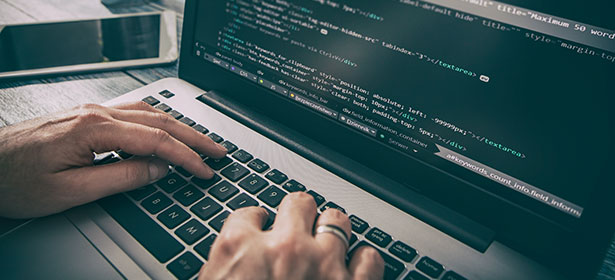These internet-connected devices can increase security, and also help you manage your life more easily, such as greeting visitors from your phone while away.
However, when installing any video and audio recording device you need to consider your data protection responsibilities. Read on for how to ensure your home security set-up doesn't get you in hot water with the law.
Is it legal to record video at your home?
 Yes, it is, but with some caveats. Under data protection laws there is a responsibility to take precautions when processing the personal data of other living individuals, including when using video and audio recording devices. These rules
Yes, it is, but with some caveats. Under data protection laws there is a responsibility to take precautions when processing the personal data of other living individuals, including when using video and audio recording devices. These rules
If you have a camera that just points at your private driveway, for example, or covers solely your back garden, then you do not need to worry as you won't be capturing any other private individuals (although, it is worth considering invited visitors and guests when using these devices).
If the camera records outside that boundary, such as the street or neighbouring homes or gardens, then you do have responsibilities under the General Data Protection Regulations (GDPR). This is because you could be capturing audio and video containing other people's private data.
There are ways to ensure that your cameras don't capture outside your property, such as adjusting the field of recording or setting 'privacy zones', but often it is hard in packed neighborhoods to completely ensure cameras don't film beyond your home.
Under data protection legislation, anyone captured on footage from your camera has the right to ask for a copy, have it erased or request for them not to be filmed in the future. However, if you are careful and respectful, and follow the advice below, the situation should never get to such a scenario.
What's the law around smart doorbells?

While security cameras can be placed in various locations, including at the rear of properties and even inside, smart doorbells typically are installed on the front door. This means there is a high likelihood that the doorbell will record into the street ahead.
In 2021, a judge ruled that an Oxfordshire man had broken data laws over his placement of multiple smart doorbells and security cameras at his property that also covered a neighbour's home. The judge not only expressed concern over the video recording capacity of the devices beyond his property, but also the fact that they could capture audio potentially more than 60 feet from the device.
However, the background to the Oxfordshire case was a long-running dispute between the parties involving what was described as a sustained campaign of harassment.
See below how to set up your cameras and doorbells to ensure you always stay within your legal responsibilities, and keep your neighbours happy.
How do I ensure my cameras stay within the law?
 Consider placementUse privacy featuresConsult your neighboursBe reasonableWarning signDelete unused footage
Consider placementUse privacy featuresConsult your neighboursBe reasonableWarning signDelete unused footage
What can I do if I suspect a neighbour is filming me or my property?

If you are on the other end of the lens, and your neighbour is filming part of your property and that is causing some concern, you have a number of options.
First, you should contact the person and express why you are concerned about the recording. You could do this in person, although sending them a letter outlining your position records this on paper.
You should ask why their CCTV needs to film part of your property and see if it was possible to reposition the cameras, or even come to some sort of shared agreement over filming (eg the cameras cover both your personal property to increase security).
You have the right to request to see what they are recording, and this might potentially assuage your concerns over how intrusive the filming actually is by their cameras. If you can't find a middle ground, you could contact the Information Commissioner's Office (ICO), or even the police if the situation escalates into potential harassment.
Do I need to surrender footage from smart devices to the police?

If you've watched a crime documentary recently, chances are it included footage from a home security camera or smart doorbell.
As the cameras often film beyond the boundaries of a property (see above for how to do this legally), they can often capture crimes in progress. Police will occasionally request to see footage if they see you have cameras installed, but as there is no specific law stating that you must share camera footage, you can refuse to do so.
However, if police successfully secure a search warrant from a court they can force you to share it, or face the consequences. Most people are happy to cooperate, though, rather than kick up a fuss.
Don't let hackers snoop on your camera footage

We’ve exposed numerous smart devices that can be easily hacked over the years, bringing threats to your security and privacy.
Don’t just assume that if a device is on sale, it's secure. We rigorously test every product for cybersecurity and data privacy, so you can buy with confidence. Plus, if we know how long the brand will support the product with vital security updates, we publish this information (sadly, too many say nothing at all).
All wireless security cameras and smart doorbells that we test are fully checked for how they protect your from hackers, as well as work effectively to increase your home security.
source https://www.which.co.uk/news/article/is-it-legal-to-record-security-camera-and-smart-doorbell-footage-at-your-home-akMQD1C0P0zi
